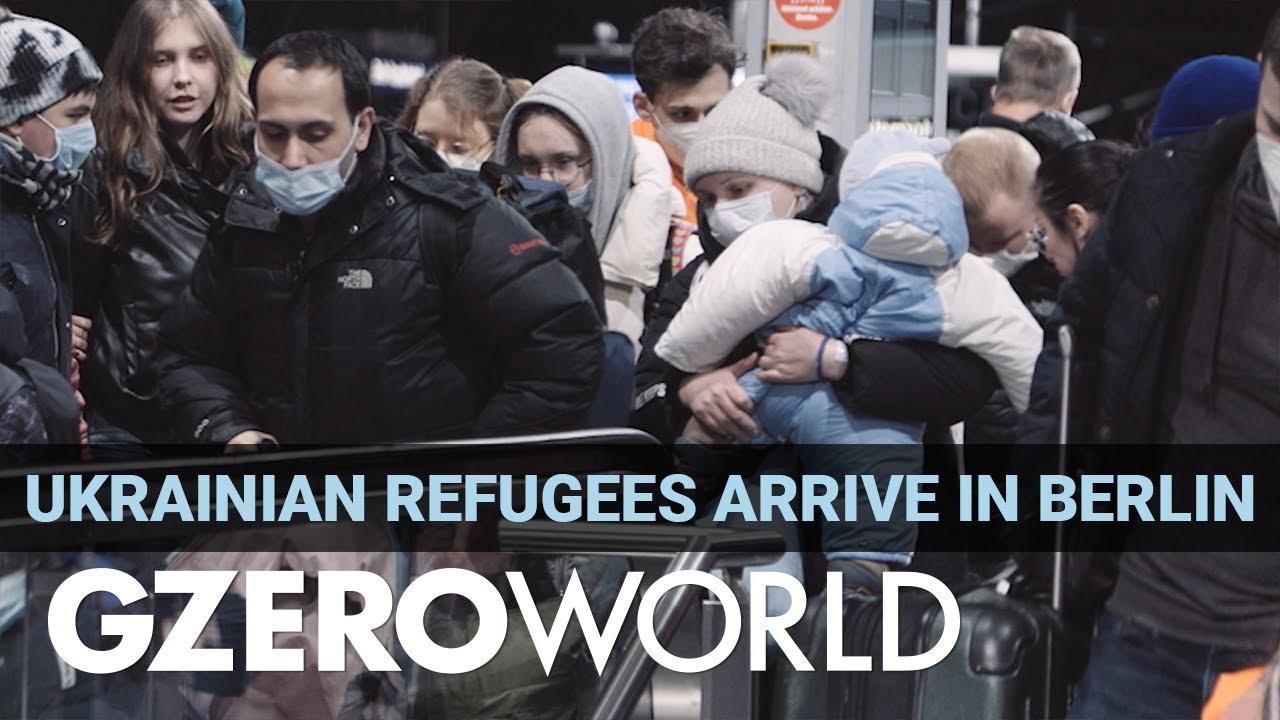
Hour after hour, day after day, trains from the East arrive at Berlin's main station, each carrying hundreds of refugees from the war in Ukraine.
Since Russia's invasion began three weeks ago, close to 3 million Ukrainians have fled, in the largest displacement of Europeans since the Balkan wars of the 1990s. And so far, more than 120,000 of them have made their way here, to Germany.
The refugees are overwhelmingly women and children, since all Ukrainian men between the ages of 18 and 60 are required to stay behind to fight the Russians.
So far, the German government and people have rolled out the red carpet. Loudspeakers at the station broadcast welcome messages in Ukrainian, while dozens of local volunteers have turned up to help comfort and orient the refugees as they arrive -- dazed, grateful, and apprehensive.
"Our main purpose is to let people know that they’re welcome here," said Matilda, 26, a German citizen volunteer who declined to give her last name. She and her colleagues guide the arrivals to essential services like bathrooms and food and rest areas, while handing out toys to the many children who have arrived on the trains as well.
One of the first things that the Ukrainian refugees must do upon arrival is get Covid shots. Even before the war, barely one in five Ukrainians was vaccinated, due to a combination of botched vaccine procurement by President Volodymyr Zelensky's government, and traditionally high vaccine hesitancy in the country more broadly.
To get the jabs, recent arrivals lined up at the Ukrainian embassy in Berlin, where some of them shared harrowing stories of escape from the war.
"We walked for 7 hours with a pregnant woman who was 5 months pregnant," one woman who preferred to remain anonymous told us, holding back tears. "After she stayed in Poland in a hospital she said “I can’t feel my child.” It’s crazy."
The refugees in Berlin are relieved to be safe, but they also worry about their relatives back home. "Our men are strong, our army is strong," said one woman, "but they need help. Please close the sky."
Meanwhile, speaking to us from a makeshift bomb shelter in the Kyiv metro, Ukrainian journalist Kristina Berdynskykh told us that while she had debated leaving too, she decided to stay to tell the story of Ukrainians' resistance to the Russian assault.
As the modern European city she once knew was transformed overnight into a depopulated warren of barricades, sandbags, and Czech hedgehogs, she says, "I felt how strongly Kyiv would fight for itself, and I want to be here so that as a journalist I can tell that story. I believe that Kyiv, and all of Ukraine, will win – and I want to be in Kyiv when that happens."
With Vladimir Putin's armies stepping up their attempts to besiege and conquer the Ukrainian capital, she had a warning. "If they enter the city," she said, "it would be a huge battle, a sea of blood, a sea of death. Kyiv won’t surrender, the people won’t flee, they will defend it until the end."